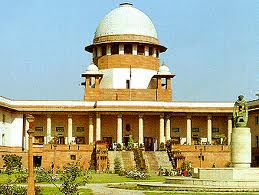  Centre has absolute powers to decide the terms and conditions for telecom operators as neither the Telecom Regulatory Authority of India (TRAI) nor the Telecom Disputes Settlement and Appellate Tribunal (TDSAT) can overrule it, the Supreme Court has ruled.
The apex court said though TRAI has been conferred with the statutory power to recommend the terms and conditions of the license and the Central Government was bound to seek its recommendations, yet, the same was not binding on it. "The final decision on the terms and conditions of a license to a service provider rested with the Central Government. The legal consequence is that if there is a difference between the TRAI and the Central Government with regard to a particular term or condition of a license, as in the present case, the recommendations of the TRAI will not prevail and instead the decision of the Central Government will be final and binding."
A bench of justices R V Raveendran and A K Patanaik passed the ruling while upholding an appeal filed by the Union Government challenging a TDSAT direction of 2007 to the Government to prepare a revised term and conditions for the licensees vis-a-vis adjusted gross revenue (ADR).
The licensees had earlier questioned the validity of the definition of ADR before the Tribunal on the ground that it can only relate to the revenue directly arising out of telecom operations licensed under Section 4 of the Indian Telegraph Act, 1885, after adjustment of expenses and write offs and revenues directly not attributable to the licensed telecom activities. |